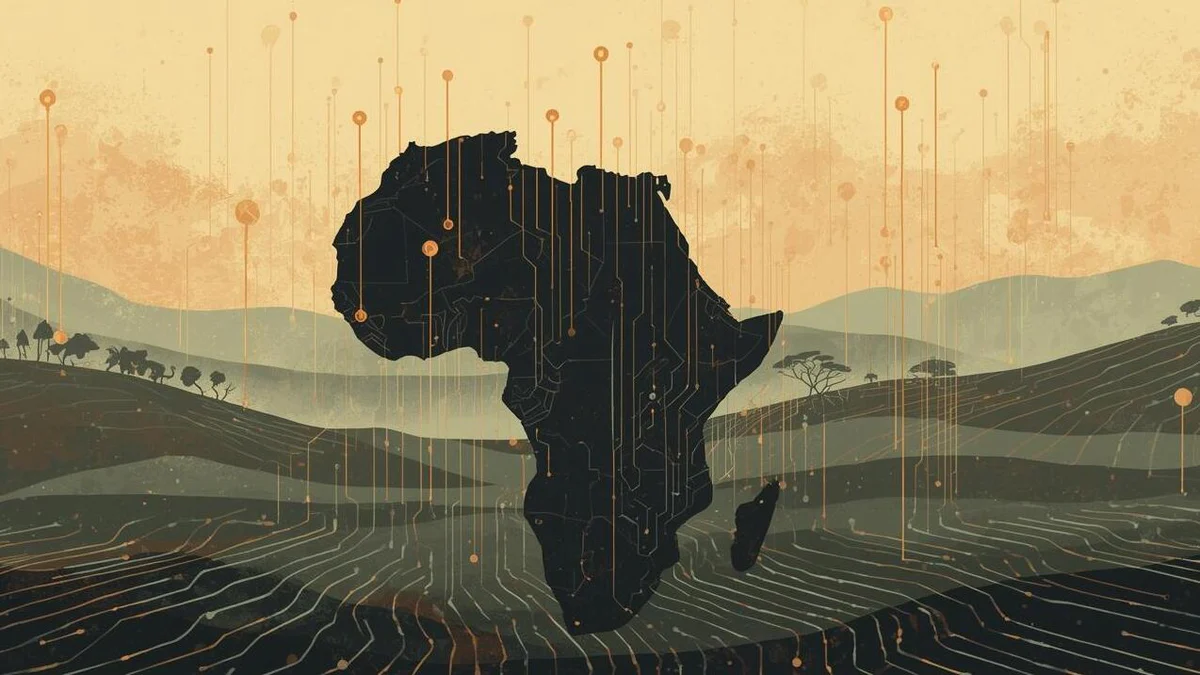Africa's AI Language Battle: Local Languages Fight Global Tech Gap
As artificial intelligence reshapes the global technological landscape, Africa faces a crucial battle to preserve and integrate its local languages into AI systems. This challenge represents both a critical threat to cultural sovereignty and a unique opportunity for innovation in the AI space.

African tech developers working on local language AI solutions
Africa's AI Language Battle: Local Languages Fight Global Tech Gap
The Global AI Landscape and Africa's Position
As artificial intelligence rapidly evolves worldwide, a critical challenge emerges: how can Africa's local languages secure their place in a tech ecosystem dominated by English, Mandarin, and Spanish? While the continent lags in industrial and scientific AI deployment, it simultaneously faces a strategic imperative: ensuring the survival and integration of its indigenous languages in tomorrow's digital universe.
Global Tech Asymmetry and African Challenges
The United States, China, and to a lesser extent, Europe, currently control the majority of AI infrastructure, funding, and patents. This concentration manifests in several ways:
- Research concentration: Just ten countries produce 80% of AI-related scientific publications
- Private sector dominance: Tech giants like Google, Microsoft, OpenAI, Baidu, and Tencent largely dictate research priorities
- Infrastructure inequality: Access to supercomputers and large language models remains highly concentrated
Within this landscape, Africa faces structural challenges in funding, training, and data availability. However, this deficit could become a strategic advantage if the continent successfully leverages its linguistic and cultural uniqueness.
The Critical Role of African Languages in AI Development
With over 2,000 languages, Africa's linguistic diversity presents both challenges and opportunities. Key considerations include:
- Digital erasure risk: Languages like Wolof, Lingala, Swahili, and Hausa remain underrepresented in AI training data
- Cultural sovereignty: Language preservation directly impacts cultural transmission and cognitive independence
- Opportunity for innovation: Structured corpus development and targeted machine translation could transform this challenge into a competitive advantage
Emerging Local Initiatives and Solutions
Several African projects are working to bridge the AI language gap:
- Masakhane: A pan-African researcher network focused on African language machine translation
- Academic leadership: Universities in Nairobi, Johannesburg, and Accra are investing in Natural Language Processing labs
- Startup innovation: Local companies are developing voice solutions for African markets in banking, healthcare, and education
Geopolitical and Economic Implications
The stakes of this linguistic battle extend beyond technology. Africa's AI gap impacts:
- Economic potential: Risk of local actors being marginalized in the global digital economy
- Political autonomy: Reduced state capacity to regulate and shape AI development
- Social cohesion: Growing divide between globally connected elites and local language communities
Africa's AI language challenge represents both a critical sovereignty issue and a strategic opportunity. With sustained investment in data collection, engineer training, and infrastructure development, the continent could emerge not as a follower but as an innovator, creating AI systems that truly reflect its social, economic, and cultural realities.
Rachel Whitman
Rachel L. Whitman is a political columnist and investigative journalist based in Washington, D.C. Her writing focuses on democratic resilience, civil rights, and the intersection of technology and public policy. With a background in law and public affairs, she brings sharp analysis and a deep commitment to progressive values.
